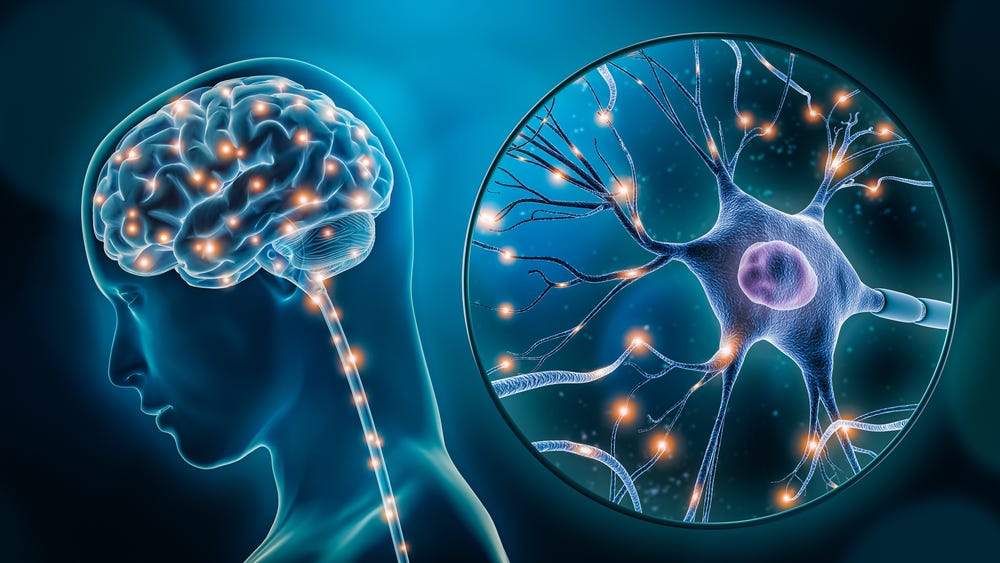ScienceDaily: All - December 06, 2024
Today's top research news
To remember conversations, keep making new brain cells
A new study provides the first cellular evidence that making new brain cells in adults supports verbal learning and memory, which enables people to have conversations and to remember what they hear. This discovery could point to new approaches to restore cognitive function. The study relied on brain tissue from patients with drug-resistant cases of mesial temporal lobe epilepsy (MTLE), which involves seizures as well as accelerated cognitive decline.
Image: MattL_Images/Shutterstock.com
DNA of 1,000 year-old maize sheds light on origins of globally important food crop
Researchers have tested ancient DNA from corn found at archaeological sites in Arkansas, shedding new light on the dispersal of one of the world's most important food crops.
Astronomers witness the in situ spheroid formation in distant submillimetre-bright galaxies
Researchers have used the ALMA telescope and found old elliptical galaxies in the universe can form from intense star formation within early galaxy cores.
Mothers massively change their intestines during pregnancy and nursing
When women are pregnant and nurse their babies, their bodies change and various organs, such as the breasts or the immune system, are adapted to ensure the health of both mother and child. This happens throughout evolution in all mammals. An international research team now reports the surprising finding that the intestine also changes completely in pregnant and nursing females, resulting in a doubling of the intestinal surface area and a striking structural reorganization.
Tyrannosaur teeth discovered in Bexhill-on-Sea, England
Research has revealed that several groups of meat-eating dinosaur stalked the Bexhill-on-Sea region of coastal East Sussex 135 million years ago.
New pathways to long-term memory formation
Researchers have discovered a new pathway to forming long-term memories in the brain. Their work suggests that long-term memory can form independently of short-term memory, a finding that opens exciting possibilities for understanding memory-related conditions.
Iberian Neolithic societies had a deep knowledge of archery techniques and materials
A research team has made exceptional discoveries on prehistoric archery from the early Neolithic period, 7,000 years ago. The well organic preservation of the remains of the Cave of Los Murcielagos in Albunol, Granada, made it possible for scientists to identify the oldest bowstrings in Europe, which were made from the tendons of three animal species. The use of olive and reed wood and birch bark pitch in the making of arrows reveals an unprecedented degree of precision and technical mastery, as highlighted in the study. The discoveries redefine the limits of our knowledge about the earliest agricultural societies in Europe and provide a unique view on ancestral archery materials and practices.
Potential epigenetic biomarker found for preeclampsia in pregnancy
Analysis of cheek swabs taken from pregnant women revealed a potential epigenetic biomarker for preeclampsia, a potentially life-threatening condition that often leads to preterm births. While a clinical trial is needed to confirm the results, a study offers hope that a simple test can be developed to identify preeclampsia earlier in pregnancy. Currently preeclampsia is usually identified by symptoms, such as abnormally high blood pressure, which only appear in the second trimester of pregnancy. Sometimes the condition can go undetected until it becomes an emergency.
Researchers: If Power-to-X is to be a real climate solution, the state needs to use the stick
Despite the massive hype surrounding Power-to-X (PtX), most of the world's announced green hydrogen projects lack financing. The market is deemed far too risky by stakeholders. And, there are many potential pitfalls. According to the authors of a new study actors must be 'compelled' to invest in a genuinely green manner.
Food allergy anxiety at 30,000 feet
The skies aren't always so friendly for patients and families affected by food allergies, who may often experience worry and anxiety regarding airline travel, according to a new study.
Cleaning surfaces every two hours cuts norovirus infections by 83 percent in airports, study finds
At airports, frequently disinfecting surfaces, mask-wearing and antimicrobial surface coatings can all help prevent the spread of norovirus, according to a new study.
Engineered immune cells may be able to tame inflammation
When the immune system overreacts and starts attacking the body, the only option may be to shut the entire system down and risk developing infections or cancer.
Avian influenza viruses typically require several mutations to adapt and spread among humans, but what happens when just one change can increase the risk of becoming a pandemic virus? A recent study reveals that a single mutation in the H5N1 'bird flu' virus that has recently infected dairy cows in the U.S. could enhance the virus' ability to attach to human cells, potentially increasing the risk of passing from person to person. The findings highlight the need to monitor H5N1's evolution.
Helping robots make good decisions in real time
An innovative algorithm called Spectral Expansion Tree Search helps autonomous robotic systems make optimal choices on the move.
How breast cancer cells survive in bone marrow after remission
A new study has shed light on a previously poorly understood aspect of breast cancer recurrence: how cancer cells survive in bone marrow despite targeted therapies.


